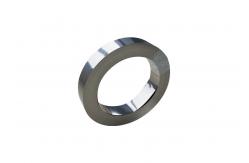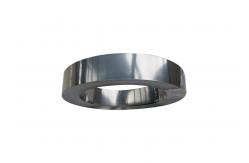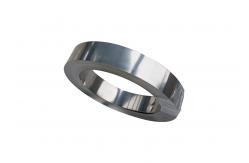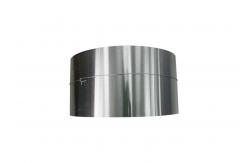Kovar / Nilo K Expansion Precision Alloy Ribbon For Glass Sealing
|
|
Kovar/ Nilo K Expansion Precision Alloy Ribbon/ Strip for Glass Sealing
4J29 also known as Kovar alloy. it was invented to meet the need for a reliable glass-to-metal seal, which is required in electronic devices such as light bulbs, vacuum tubes, cathode ray tubes, and in vacuum systems in chemistry and other scientific research. Most metals cannot seal to glass because their coefficient of thermal expansion is not the same as glass, so as the joint cools after fabrication the stresses due to the differential expansion rates of the glass and metal cause the joint to crack.
Kovar is a nickel-cobalt ferrous alloy compositionally identical to Fernico, designed to be compatible with the thermal expansion characteristics of borosilicate glass (~5 × 10−6 /K between 30 and 200 °C, to ~10 × 10−6 /K at 800 °C) in order to allow direct mechanical connections over a range of temperatures. It finds application in electroplated conductors entering glass envelopes of electronic parts such as vacuum tubes (valves), X-ray and microwave tubes and some lightbulbs. The name Kovar is often used as a general term for Fe-Ni alloys with these particular thermal expansion properties. Note the related particular Fe-Ni alloy Invar which exhibits minimum thermal expansion.
Kovar was invented to meet the need for a reliable glass-to-metal seal, which is required in electronic devices such as light bulbs, vacuum tubes, cathode ray tubes, and in vacuum systems in chemistry and other scientific research. Most metals cannot seal to glass because their coefficient of thermal expansion is not the same as glass, so as the joint cools after fabrication the stresses due to the differential expansion rates of the glass and metal cause the joint to crack.
Kovar not only has thermal expansion similar to glass, but its nonlinear thermal expansion curve can often be made to match a glass, thus allowing the joint to tolerate a wide temperature range. Chemically, it bonds to glass via the intermediate oxide layer of nickel oxide and cobalt oxide; the proportion of iron oxide is low due to its reduction with cobalt. The bond strength is highly dependent on the oxide layer thickness and character. The presence of cobalt makes the oxide layer easier to melt and dissolve in the molten glass. A grey, grey-blue or grey-brown color indicates a good seal. A metallic color indicates lack of oxide, while black color indicates overly oxidized metal, in both cases leading to a weak joint.
Mainly used in electric vacuum components and emission control, shock tube, igniting tube, glass magnetron, transistors, seal plug, relay, integrated circuits lead, chassis, brackets and other housing sealing.
Chemical composition 4J29 bar
|
||||||||||||||||||||||||
| Product Tags: precision tubing kovar alloy |
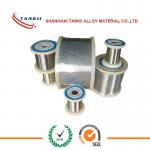
|
1J46 Soft Magnetic Alloy Wire 0.02-8mm Bright Surface |
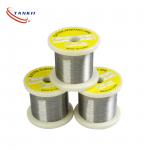
|
0.1mm 0.6mm High Elastic Modulus Elastic Alloy 3j53 Wire For Optical And Electronic Components |
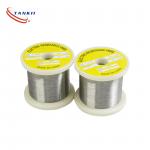
|
Excellent Mechanical Properties Elastic Alloy Wire 3j53 Wire 0.2mm / Strip For Elastic Connector |
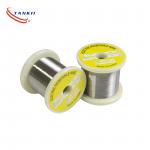
|
Ferromagnetic Precipitation Strengthened Constant Elasticity Alloy NiSpanC 3j53 Alloy Wire For Medical Apparatus |
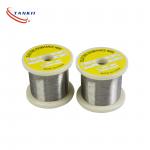
|
Ni-Cr-Ti-Fe Alloy Wire High Precision Constant Elastic Alloy Wire For Ultra Mechanical Filters |
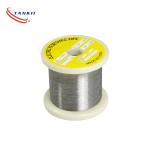
|
High Precision Constant Elastic Wire 0.1mm 0.5mm Ni-Cr-Ti-Fe Alloy Wire For Precision Machinery |

